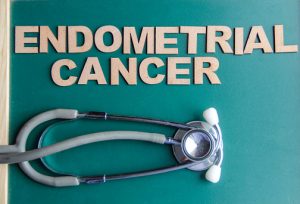
Researchers utilized a hospital-based case-control analysis, which represented patients with endometrial or ovarian cancer who participated in studies to assess the risk of either disease. Control women were aged 40 to 85, and the study consisted of 289 patients and 1,016 controls.
Endometriosis was reported in 2.1 percent of the controls and 4.8 percent of the cases. The researchers found that endometriosis was a relevant predictor for case-control status in addition to other predictive factors.
Endometriosis can increase the risk of developing endometrial cancer later in life
A study published in the International Journal of Gynecological Cancer found that patients with endometriosis have a higher risk of developing endometrial cancer later in life. Previous studies have found a link between endometriosis and other forms of ovarian cancer, and although this association has been found, the link between endometriosis and endometrial cancer has not been well established.
The researchers from Institute of Clinical Medicine, School of Medicine, National Yang-Ming University, Taipei in Taiwan conducted a population-based national health registry database of 15,488 cases to determine the development of endometrial cancer. Each patient included in the study was paired with eight controls of same age, sex, and index year.
After a 10-year follow-up, 392 patients developed endometrial cancer with 104 (0.7 percent) cases in the cohort and 288 (0.2 percent) in the controls. The results showed that there were higher incidences of endometrial cancer in the endometriosis cohort, as opposed to the healthy controls.
The results reveal that there is an increased risk of endometriosis and endometrial cancer, but the common link is yet to be identified. Further research is required to better understand the association between the two diseases.
Related Reading:
Reducing endometriosis pain and relieving symptoms tested in new potential drug study
A new study tested a potential drug for reducing endometriosis pain and relieving symptoms. Endometriosis is a gynecological disorder in which cells in the uterus lining grow out to other areas of the body. The condition might result in a hysterectomy. Current treatment methods for endometriosis are largely hindered by a slew of side effects, and surgical procedures are quite risky. Clinical trials were carried out to test a drug that has potential to relieve pain and other symptoms associated with endometriosis. Continue reading…
Endometriosis, a chronic disorder in women, causes, symptoms, and natural treatment
Endometriosis is a painful condition that affects an estimated one in 10 women during their reproductive years. Statistical studies show this works out to about 176 million women around the world between the ages of 15 and 49. Endometriosis, which is pronounced en-doe-me-tree-O-sis, essentially means that a tissue (the endometrium), which lines the inside of a woman’s uterus, grows outside the uterus. Continue reading…
Sources:
http://bmccancer.biomedcentral.com/articles/10.1186/s12885-015-1821-9
http://endometriosisnews.com/2015/05/21/patients-endometriosis-increased-risk-developing-endometrial-cancer/